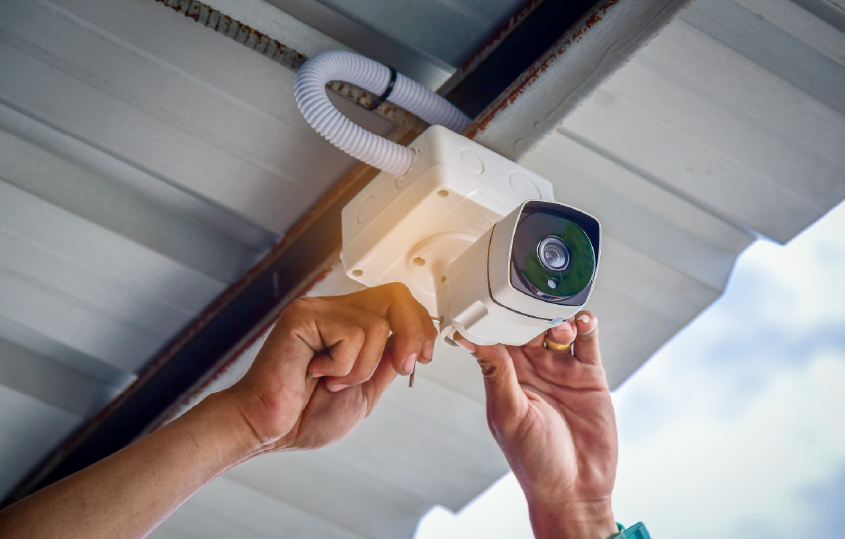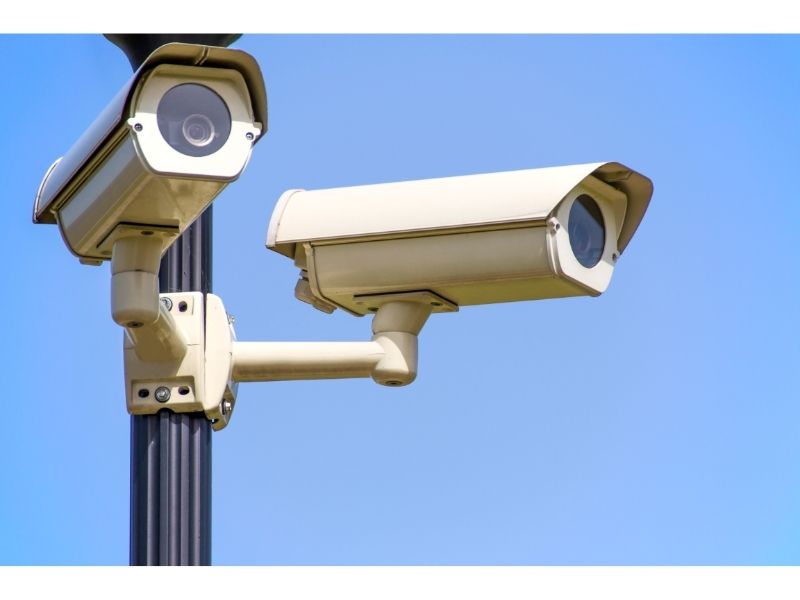The duration of CCTV footage storage typically ranges from 30 to 90 days. Most businesses and home systems adhere to this standard.
Navigating the complexities of CCTV systems can be daunting, especially when considering the retention of crucial footage. Understanding how long a CCTV footage lasts is essential for security management, legal compliance, and data storage planning. Security needs and legal requirements dictate the retention period, balancing between adequate coverage and manageable storage costs.
Modern digital storage solutions have made it easier to store large amounts of data for extended periods. Yet, the specific duration often depends on factors such as storage capacity, recording quality, and regulatory guidelines. This knowledge ensures that individuals and businesses can effectively plan their security measures, ensuring their premises are monitored and protected efficiently.
Introduction To Cctv Footage Lifespan
CCTV footage lifespan is a key concern for security. It tells us how long video is kept before it gets overwritten. Understanding this helps in security management and legal compliance.
Factors Influencing Retention Duration
Several factors determine how long CCTV footage is stored. These include:
- Storage capacity: More space means longer footage retention.
- Legal requirements: Laws may dictate minimum storage periods.
- Resolution: Higher resolution videos take more space, reducing retention time.
- Recording schedule: Continuous recording shortens the lifespan compared to motion-activated recording.
Typical Storage Timelines
The duration for which CCTV footage is held varies. Common timelines include:
| Setting | Storage Time |
|---|---|
| Home security | 1-7 days |
| Businesses | 30-90 days |
| Banks | Up to 6 months |
| Government facilities | 1 year or more |
These timelines can change with specific needs or regulations. Always check current standards for accurate information.

Credit: www.singaporecctv.com
Storage Technologies And Capacity
Understanding how long CCTV footage is stored involves exploring storage technologies and capacity. Different systems have varying lifespans for video retention. This hinges on the type of technology in use and the storage space available.
Analog Vs. Digital Systems
Analog CCTV systems once dominated the surveillance industry. They recorded video onto tapes. These tapes had limited space. Often, they would overwrite old footage. Digital systems have revolutionized storage. They use hard drives or cloud services. This allows for more data to be stored. It also ensures better quality footage.
- Analog systems: use tapes, limited space, lower quality
- Digital systems: use hard drives/cloud, more space, higher quality
Advancements In Storage Solutions
Storage solutions for CCTV have greatly advanced. Modern systems use high-capacity hard drives and network-attached storage (NAS). Cloud-based solutions offer scalable storage options. Users can access footage from anywhere. Compression technologies like H.264 and H.265 have increased storage efficiency.
- High-capacity hard drives store weeks or months of footage.
- NAS provides dedicated storage for surveillance networks.
- Cloud storage offers remote access and scalability.
- Compression technologies maximize storage space.
| Technology | Benefits |
|---|---|
| Hard Drives | High capacity, local access |
| Cloud Storage | Scalability, remote access |
| Compression | Efficient use of space |
Legal And Privacy Considerations
Understanding legal and privacy issues is crucial when handling CCTV footage. Various laws dictate how long one can store such footage. These laws protect individuals’ privacy rights. They also ensure data security. Companies must comply to avoid penalties.
Regulations Governing Footage Storage
Regulations vary by location and industry. They set minimum and maximum retention periods. For instance, some places require a 30-day storage period. Others may allow up to 90 days. After this period, one must delete the footage unless needed for an investigation.
| Location | Minimum Storage | Maximum Storage |
|---|---|---|
| Location A | 30 Days | 90 Days |
| Location B | 14 Days | 60 Days |
Privacy Concerns And Data Protection
Privacy laws protect personal data in CCTV footage. Businesses must handle this data with care. They must inform people about the surveillance. They should also secure the footage against unauthorized access.
- Informing public about cameras
- Securing footage access
- Deleting footage after the retention period
Following these steps helps ensure compliance with privacy laws. It also maintains public trust. Safeguarding personal data is not just a legal obligation. It is a commitment to individual rights.
Cctv Footage In Different Sectors
The lifespan of CCTV footage varies across different sectors. Let’s explore how long CCTV recordings last in retail, business settings, and public areas.
Retail And Business
In retail and business sectors, CCTV plays a crucial role. It helps in preventing theft and ensuring safety. The duration of CCTV footage storage here can range from 30 to 90 days. This period allows businesses to review incidents that may have occurred within the past month or three.
- Storage capacity and legal requirements often dictate the retention period.
- Businesses with larger storage capacities tend to keep footage longer.
- Some sectors may have specific laws that set the minimum storage time.
Public Spaces And Government Buildings
For public spaces and government buildings, the approach is different. These areas often have higher security needs. Therefore, CCTV footage may be kept for 90 days to 2 years or longer.
| Location Type | Typical Storage Duration |
|---|---|
| Public Parks | 90 days |
| Government Offices | 1 year |
| High-Security Buildings | 2 years |
This extended duration ensures that evidence is available for longer periods. It aids in investigating incidents that might affect national or local security.
Data Management Strategies
Understanding Data Management Strategies is crucial for CCTV footage. These strategies help in storing, accessing, and managing video data efficiently. Let’s explore two key strategies: Effective compression techniques and Cloud storage options.
Effective Compression Techniques
Compression reduces the size of video files. It makes storing footage easier. Two main types are:
- H.264: It is widely used. Offers good quality at lower file sizes.
- H.265: An upgrade of H.264. It provides even smaller file sizes without compromising quality.
Using these techniques, you can store more footage. This is without needing more space.
Cloud Storage Options
Cloud storage offers remote video storage. It has several benefits:
- Accessibility: Access footage from anywhere, anytime.
- Scalability: Easily increase your storage space as needed.
- Security: Cloud providers often have strong security measures.
Options vary from basic to advanced. Prices depend on storage size and features.
| Provider | Basic Plan | Advanced Plan |
|---|---|---|
| Cloud A | 50 GB | 1 TB |
| Cloud B | 100 GB | Unlimited |
Choosing the right compression technique and cloud storage option is vital. It ensures your CCTV footage lasts longer. It also makes management easier.
Enhancing Footage Longevity
Many ask, “How long does CCTV footage last?” The answer can vary. Proper steps can help preserve footage longer. This section focuses on enhancing footage longevity.
Maintenance Of Cctv Equipment
Good maintenance extends footage life. It involves:
- Cleaning cameras: Dust-free lenses ensure clear images.
- Checking connections: Loose cables can disrupt recording.
- Updating software: Latest versions fix bugs, improve performance.
- Inspecting storage devices: Healthy hard drives store data reliably.
Regular checks catch issues early. This prevents footage loss. Technicians can fix problems fast.
Regular Data Backup Practices
Backups protect footage from loss. Key practices include:
- Automatic backups: Set systems to copy footage regularly.
- Cloud storage: Use online services for extra copies.
- Multiple formats: Save copies in different formats, like USB or DVDs.
These steps ensure footage is safe. Even if one copy fails, others remain.
Access And Retrieval Of Stored Footage
Security cameras keep our spaces safe. Knowing how to access and retrieve stored CCTV footage is key. Let’s explore this.
Retrieval Processes
Retrieving CCTV footage is a straightforward process. Users often need access rights. Here’s how it works:
- Log in to the CCTV system.
- Select the date and time for footage.
- Click on the desired camera feed.
- Use the export or save function to retrieve.
Challenges In Footage Extraction
Sometimes, retrieving footage is not easy. Challenges may include:
- Data corruption can make footage unusable.
- Overwritten data due to limited storage.
- Technical issues may prevent access.
- Strict access controls limit retrieval.
Users must understand these challenges to ensure footage is available when needed.

Credit: mesaalarm.com
Future Of Cctv Storage
The way we store CCTV footage is changing fast. Storage duration varies widely. It depends on the camera type, storage capacity, and data management policies. With new tech, we can store more data for longer. Let’s explore what the future holds for CCTV storage.
Emerging Technologies
New tech is shaping CCTV storage. Innovations make it possible to keep more footage. Cloud storage is a big game-changer. It allows off-site storage of vast amounts of data. Edge computing brings another leap. It processes data on local devices, not in a central system. This reduces the need for massive central storage.
- AI helps by tagging key moments in footage.
- Compression algorithms shrink file sizes.
- Solid-state drives (SSDs) offer faster data retrieval.
Predictions For Storage Capabilities
Expectations for future storage are high. Experts predict a surge in capacity. By 2030, a single drive could hold petabytes of data. This means longer storage of high-quality footage. Big Data analytics will also play a role. It will help sort through footage faster.
- Higher resolution cameras will become standard.
- Long-term storage will be cost-effective.
- Users will access footage from anywhere, anytime.
These advances will make our communities safer. They will also help businesses manage security better. The future is bright for CCTV storage.

Credit: birdseyesecurity.com
Frequently Asked Questions
What Determines Cctv Footage Lifespan?
The lifespan of CCTV footage is determined by factors such as storage capacity, recording quality, legal requirements, and the security policies of the organization.
How Often Should You Overwrite Old Cctv Footage?
Old CCTV footage should be overwritten based on the organization’s data retention policy and applicable legal requirements, which could range from days to years.
Can I Recover Deleted Cctv Footage?
Deleted CCTV footage can sometimes be recovered using specialized software or by consulting professionals, but success is not guaranteed and depends on the system’s setup.
What Affects Cctv Video Quality Over Time?
CCTV video quality can degrade over time due to factors like hardware wear and tear, insufficient maintenance, and environmental conditions affecting the cameras or storage media.
Is Cloud Storage Better For Cctv Longevity?
Cloud storage can offer better longevity for CCTV footage due to scalable space, off-site redundancy, and lower risk of physical damage compared to local storage solutions.
Conclusion
Understanding the lifespan of CCTV footage is crucial for effective security management. Storage capacity and system specifications largely dictate retention duration. Regular checks ensure data integrity and compliance with legal standards. Remember, proper maintenance can extend the life of your surveillance archives.
Stay informed and proactive about your CCTV system to bolster security efforts.





